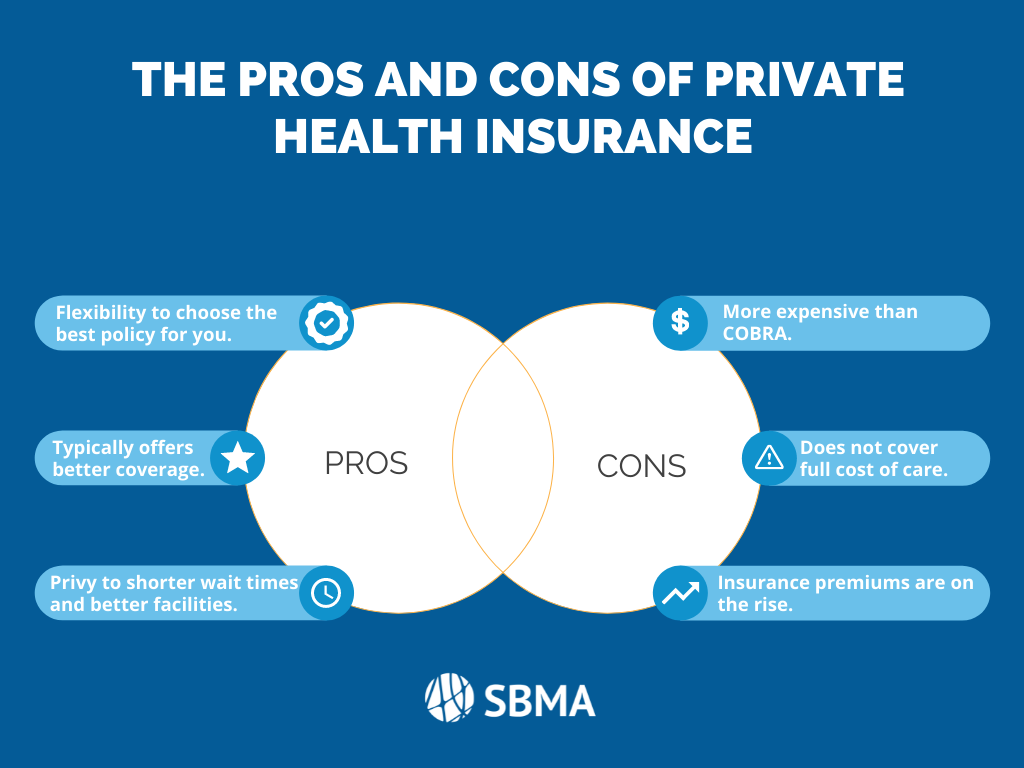Insurance Private Health Insurance
Private health insurance is a type of insurance coverage that provides financial protection for medical expenses incurred by an individual. It is designed to cover the cost of medical treatments, doctor visits, hospital stays, prescription medications, and other healthcare-related services. Private health insurance is different from public health insurance programs, such as Medicare and Medicaid, which are funded by the government and provide coverage for specific populations.
Types of Private Health Insurance
1. Individual Health Insurance
Individual health insurance is a policy that covers an individual and their dependents, such as a spouse or children. It is purchased directly from an insurance company or through an insurance agent. Individual health insurance plans can vary in coverage and cost, depending on the insurer and the specific plan selected.
2. Group Health Insurance
Group health insurance is a policy that is provided by an employer to its employees as part of their employee benefits package. Group health insurance plans typically offer more comprehensive coverage and lower premiums than individual health insurance plans. Employers may pay a portion of the premium costs for their employees, while employees are responsible for paying the remaining portion.
3. Health Maintenance Organization (HMO)

An HMO is a type of managed care plan that provides care through a network of healthcare providers. Members of an HMO are required to choose a primary care physician who coordinates their care and refers them to specialists as needed. HMO plans typically require members to obtain all of their healthcare services from providers within the network and may require pre-authorization for certain services.
4. Preferred Provider Organization (PPO)
A PPO is a type of managed care plan that allows members to receive care from any healthcare provider, regardless of whether they are in the plan’s network. However, members may pay higher out-of-pocket costs for services obtained outside of the network. PPO plans typically do not require members to choose a primary care physician or obtain referrals for specialist care.
Benefits of Private Health Insurance
1. Access to Quality Healthcare

Private health insurance allows individuals to access a wide range of healthcare services, including preventative care, diagnostic tests, and specialty treatments. This can help individuals maintain their health and well-being and receive timely medical care when needed.
2. Financial Protection
Private health insurance provides financial protection against unexpected medical expenses, such as emergency room visits, hospital stays, and surgical procedures. Without insurance, individuals may face significant out-of-pocket costs that can lead to financial hardship.
3. Choice of Providers
Private health insurance gives individuals the flexibility to choose their healthcare providers, including doctors, hospitals, and specialists. This can help individuals receive care from providers they trust and have confidence in, leading to better health outcomes.
Considerations for Choosing Private Health Insurance
1. Coverage Options

When selecting a private health insurance plan, it is important to consider the coverage options available, including the types of services covered, the network of providers, and the cost-sharing requirements. Individuals should choose a plan that meets their healthcare needs and budget.
2. Cost
The cost of private health insurance can vary depending on factors such as age, location, and coverage options. Individuals should compare premium costs, deductibles, copayments, and coinsurance percentages to find a plan that is affordable and provides adequate coverage.
3. Network of Providers
Some private health insurance plans require individuals to receive care from providers within a designated network. It is important to verify that preferred healthcare providers are included in the plan’s network to ensure access to quality care.
4. Customer Service
When choosing a private health insurance plan, individuals should consider the insurer’s reputation for customer service and responsiveness. It is important to have a positive experience when interacting with the insurer and resolving any issues that may arise.
Conclusion
Private health insurance is an important financial tool that can help individuals protect themselves against the high cost of medical care. By understanding the different types of private health insurance plans, benefits of coverage, and factors to consider when selecting a plan, individuals can make informed decisions about their healthcare needs. It is important to research and compare private health insurance options to find a plan that meets individual health and financial goals.

